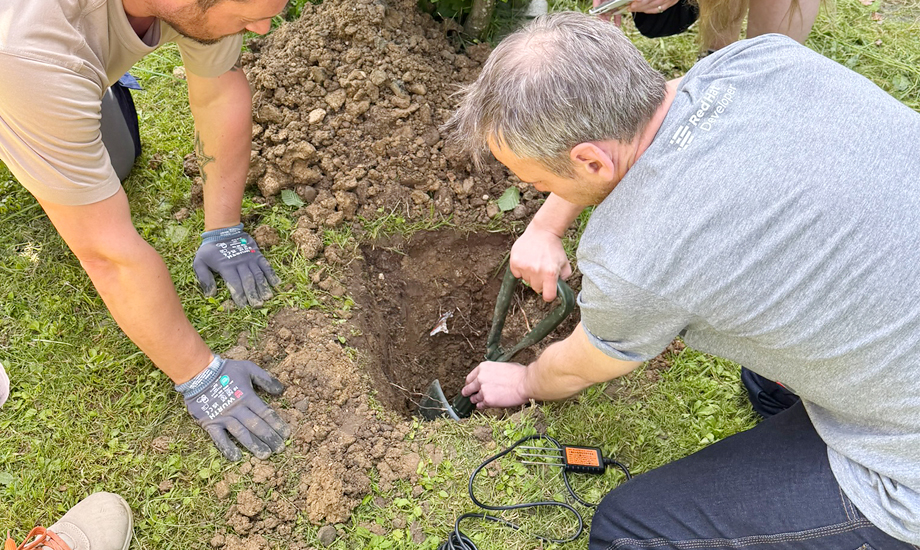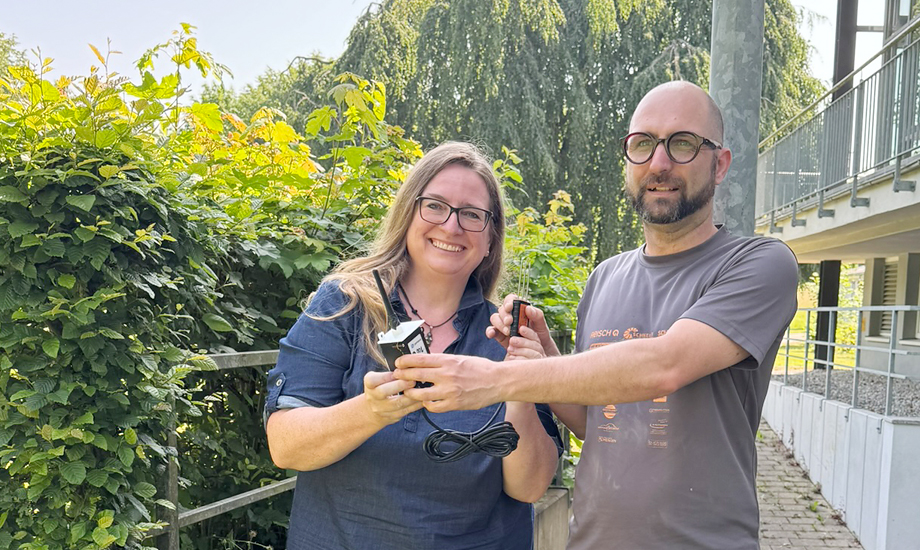First Geopark school equipped with soil sensors - climate research in the school garden
The Sonnenluger School in Mengen is the first geopark school in the UNESCO Global Geopark Swabian Alb to be equipped with its own soil measuring station. Two innovative sensors are now continuously recording the soil moisture and temperature at depths of 10 and 40 centimeters - directly in the school garden.
The aim of the project is to make the effects of climate change visible and tangible for the pupils. Particularly in the hot summer months, when drought and water shortages are increasingly an issue, the technology provides valuable data - and opens up new avenues for practical lessons.
“Our pupils not only learn about the technical structure and function of measuring sensors, but can also develop and answer their own research questions,” explains Jakob Fahlbusch, teacher at the Sonnenluger School.
Participatory climate research in the classroom
The citizen science project was initiated by the UNESCO Global Geopark Swabian Alb in cooperation with os4os - open science for open societies. The soil data collected is combined with weather data from the German Weather Service and provides a detailed picture of the local climate over the long term.
Whether in Year 5 on the topic of “Handling data” or in Year 10 when analyzing technical systems - the use in lessons is diverse. Pupils not only become data collectors, but also active contributors to climate protection.
A growing network
The Sonnenluger School is part of the network of geopark schools. Other schools in the UNESCO Global Geopark Swabian Alb are also to be equipped with sensors over the course of the year. All the data collected will be available to the schools together and enable networked learning across school and regional boundaries.
This creates a living network in which education, science and climate protection go hand in hand - in line with the UNESCO “Education for Sustainable Development” program.
Further information:
os4os - open science for open societies
How-to reel on our Instagram profile
-
 © UNESCO Geopark Schwäbische AlbWith shovel and pickaxe for climate protection: Before the sensor can be used, the first step is to dig, dig, dig.
© UNESCO Geopark Schwäbische AlbWith shovel and pickaxe for climate protection: Before the sensor can be used, the first step is to dig, dig, dig. -
 © UNESCO Geopark Schwäbische AlbThe hole in the school garden must be at least 40 cm deep so that the sensor can measure reliably.
© UNESCO Geopark Schwäbische AlbThe hole in the school garden must be at least 40 cm deep so that the sensor can measure reliably. -
 © UNESCO Geopark Schwäbische AlbTechnology that connects: Annette Kunz-Engesser (os4os) and teacher Jakob Fahlbusch with the receiver for the ground data - this will be installed in the school building.
© UNESCO Geopark Schwäbische AlbTechnology that connects: Annette Kunz-Engesser (os4os) and teacher Jakob Fahlbusch with the receiver for the ground data - this will be installed in the school building. -
 © UNESCO Geopark Schwäbische AlbInnovative and committed: The Sonnenluger School is a partner school of the UNESCO Swabian Alb Geopark - with its own podcast and a pioneering role in environmental projects.
© UNESCO Geopark Schwäbische AlbInnovative and committed: The Sonnenluger School is a partner school of the UNESCO Swabian Alb Geopark - with its own podcast and a pioneering role in environmental projects.